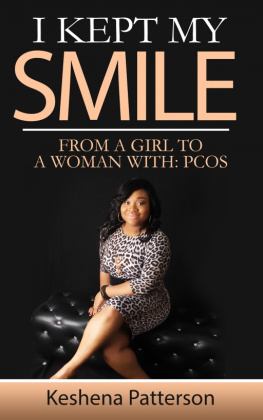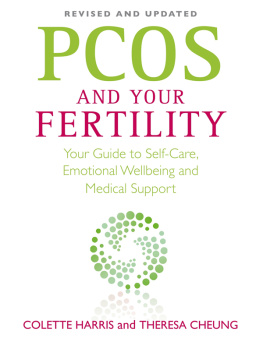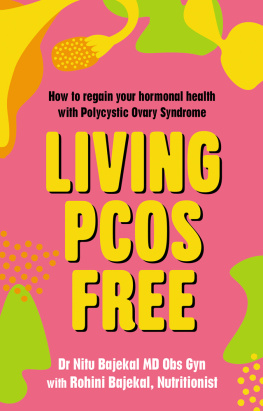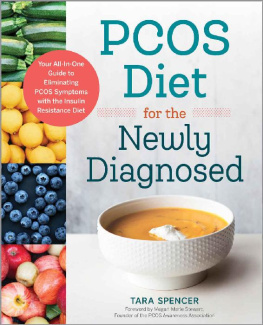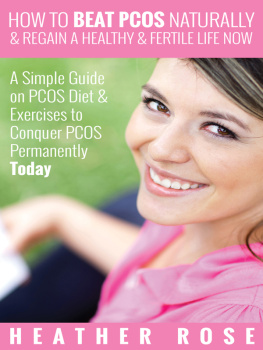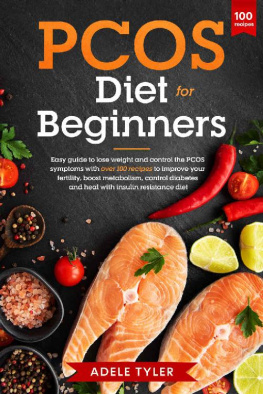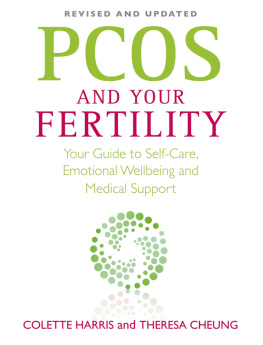I Kept My Smile
From a Girl to a Woman with: PCOS
Copyright 2016 Keshena Patterson, all rightsreserved.
Disclaimer: This book is not intended to be used todiagnose, prevent, treat, or cure any disease, and is no substitutefor medical attention. If you believe you suffer from PCOS or anyother disorder, seek the advice of a medical professional.
Smashwords Edition
Table of Contents
Introduction
I thank you for taking the time to gaininformation, insight on the condition of PCOS, how it affected me,and my mission to support those who also have it or ANY conditionthat can change the energy or confidence in ones life.
What is PCOS?
Don't worry; all will be explained in duetime. If you don't know what this illness is, or anything about itstreatments and medical statistics, you will soon enough. The goalof this book is to give you some perspective and to help you gainsome knowledge and insight about PCOS, and perhaps to even help yougain some confidence and genuine support if you are facing thedisorder yourself. I will also explain intermittently how PCOS hasaffected my own life, both in negative and sometimes positiveways.
If you suffer from PCOS, I think you'll findthat this book is a refreshing and broad take on said topic, whileat the same time hopefully serving to remind you that you're notalone in your pain and that you can rise above it.
Now, I do not claim to be a physician or tohave any kind of certification that would make me a medical experton PCOS. But what I do have are my own life experiences sufferingfrom this illness, and my own interpretations of these experiences.I think my life story is valid enough that you may be able torelate to it in your own special way.
That being said, sit back, get comfy, andkeep an open mind as you journey through the sometimes confusing,frustrating, strangely enlightening world of PCOS.
Acknowledgements
First and foremost, I want to thank my Lordand Savior for putting it in my heart to write my first book andshare my journey with PCOS. Sometimes, we dont know the whys andhows of our lessons and experiences, but eventually God will showus when the time is right.
I want to thank my mother Jeanette and fatherJeffrey for creating me; I love you both dearly. I want to thank mygodmother, sisters, nephews, niece, and my loving Patterson familyand all of my extended family as well. They mean a lot to me and Ihope I make you proud! To my grandparents, Mildred, Peter, andAlma; my aunts, Mildred and Elaine and my cousin Rosalind, Rest inPeace.
I have to thank my wonderful best friends,Kenyetta, Danteya, Andrea, Amy, and TyCora, for being there for meand supporting me when I needed it. Love you, ladies! I also wantto thank the Porters; anyone and everyone I worked with, went toschool with, was a student with, or even trained with. Its muchappreciated, thank you. I want to give a special shout out to myHouston friends MD Anderson who have welcomed me with open arms andfed me with knowledge or food!
Last but not least, I must thank all of thewomen and girls who are going through PCOS with strength, courage,and tenacity, finding their way in this society when faced withmany debilitating challenges that are hard for people without PCOSto understand. You are part of the reason I wrote this book;to have a voice, speak up, and support one another.Salute.
Chapter 1: What Is Polycystic Ovarian Syndrome(PCOS) Again?
The art of healing comes from nature, not fromthe physician. Therefore the physician must start from nature, withan open mind. - Paracelsus
PCOS, the Basics
Imagine that you just never had yourperiodor, if you did have it, "she" would come around only once ina blue moon. Sounds like a great deal, right? Well, what if thislack of period was accompanied by excruciating pain in your pelvis,infertility, elevated male hormone levels, and a collection oftiny, little cystic tumors all over your ovaries?
Doesn't sound like a great deal now, does it?In fact, it's no fun at alltrust me, I know.
Polycystic ovarian syndrome, whose rootgenetic cause is currently unknown, is a disease in which a femaleexperiences higher than normal levels of androgens in the body(male hormones), which can stop the natural cycles of thereproductive system dead in their tracks. It's natural for a womanto have some androgens, but testosterone and other suchhormones are extremely powerful, and, as such, most women only needa few of them. Too much and they begin to negatively affect thebody.
As you might imagine, this can result in allsorts of hormonal processes being thrown out of whack, since thereproductive system is so central to a person's health. Not onlycan a person who suffers from PCOS experience infertility, butmasculinization of her body, acne, chronic pain, and many othernegative effects too. PCOS is also incurable, though there are sometreatments that can help restore some level of normalcy, likelifestyle changes and the use of birth control pills (femalehormones). The worst of the symptoms can be overcome withtreatment, though sometimes radical measures are taken to improvethe quality of life of a sufferer, like surgery to remove thereproductive organs.
Despite what the name implies, however, PCOSis not actually caused by the cystic ovaries themselves(which is more of a symptom), and, in fact, a person who suffersfrom symptoms of PCOS may not actually have cysts on their ovariesat all. The disease is a result of hormonal imbalance.
How Many People Have PCOS?
Though the disease appears to have verystrong genetic factors, the risk is definitely exacerbated bycertain lifestyle factors, such as being obese or largelysedentary. As a result, it is more common in the West where obesityis on the rise due to sedentary lifestyles and over-indulgence infood, though, of course, PCOS as we know it has existed for atleast hundreds of years.
In general, however, it is estimated that asmuch as 10% of females between the ages of 18 and 44 suffer fromthis disorder, and it may be the most common disease of theendocrine system among women.
Signs of PCOS
You might have PCOS if
You have no period, or your periods are irregularbut you are already well past puberty and your cycle's initial timeof adjustment.
You suffer from infertility.
You appear to have male-like body hair and facialhair growth patterns. For example, you have hair on your chin thatis thick and coarse like that of a male.
Your hair is thinning. (This may be due to DHT, ametabolite of testosterone that is the culprit behind male patternbaldness as well.)
You have substantial acne and you are well pastpuberty.
You have chronic pain in your pelvic area, evenwhen you're not on your period.
Of course, having any (or even all) of thesesymptoms does not automatically mean that a person has PCOS, butthey are certainly common among patients who suffer from thisdisorder. If you have any suspicions, you should visit anendocrinologist or a gynecologist immediately.
How Do You Find out If You Have PCOS?
Of course, you should visit a doctor.Actually, if you believe that there is anything wrong with yourbody at all, you should go see a doctor just to be on the safeside. PCOS in particular can result not only in a reduction in yourquality of life, but also can lead to complications if leftuntreated, such as metabolic disorders and infertility.
If a doctor suspects that you have PCOS, heor she may wish to do an ultrasound to determine whether you indeedhave the telltale cysts, and your doctor may also order a bloodtest to see if you have elevated levels of androgens in yourblood.
There is a lot of shame associated withdisorders of the reproductive system, but don't let that stop youfrom taking charge of your health. There is nothing wrong with youand it is not your fault if you are showing these symptoms, and youare not any less of a woman for admitting that you need help. Thesooner you are seen by an expert the sooner you can get treatmentfor these kinds of symptoms, and the sooner you can begin toimprove your life. Hormonal imbalances can be extremely wide,all-encompassing problems because they affect so much of the body,and PCOS can even cause or worsen mood disorders; so get to theroot of the pain and see a doctor if you can.

